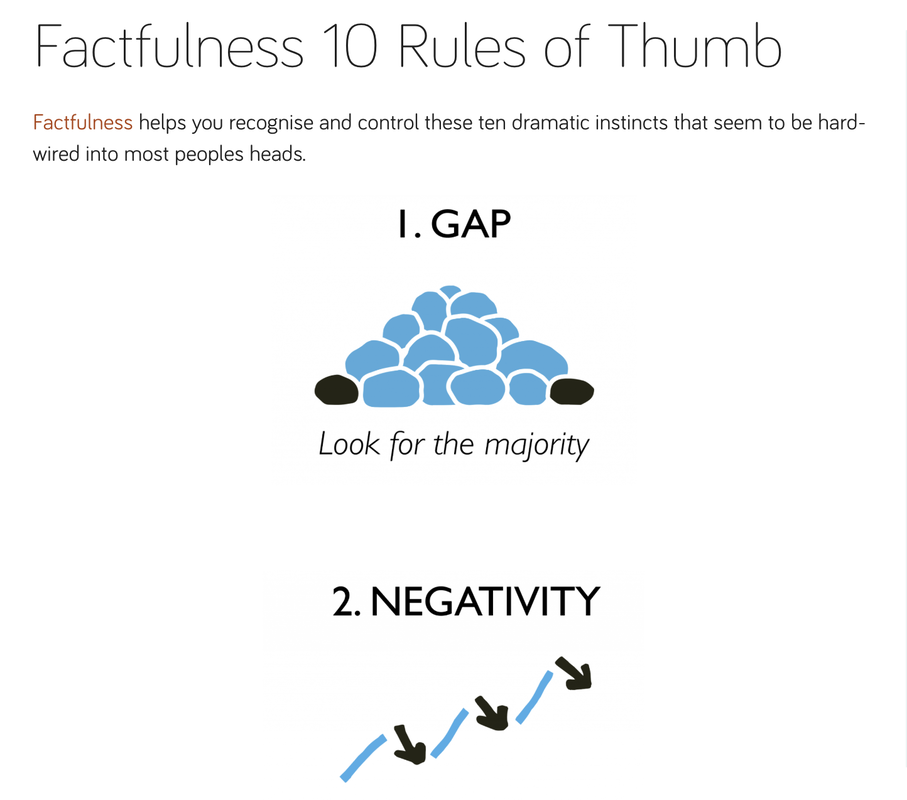Geography and Theory of Knowledge
Factfulness Rules of Thumb: In groups, examine each of the "rules of thumb". Try to explain what each says about how we should think before drawing conclusions and give an example to support it.
Knowledge Questions
- Who decides how we classify knowledge? Why might it be useful to classify knowledge?
- To what extent are the methods of the human sciences scientific?
- How is statistical data used differently in different areas of knowledge?
- How reliable are the methods available for gathering demographic data on hundreds of millions of people?
- How has ready access to vast amounts of information, and the way in which the internet has contributed to our shrinking world, changed our understanding of knowledge?
- Does language simply describe knowledge, or is it part of the knowledge itself?
- To what extent do maps reflect reality? What are the hidden messages in maps and the stories behind the way maps are presented?
- Some geographical topics, such as climate change, are controversial. How does the scientific method attempt to address them? Are such topics always within the scope of the scientific method?
- What scientific or social factors might influence the study of a complex phenomenon such as global warming?
- On what basis might we decide between the judgments of experts if they disagree with each other?
- Arguably, while some aspects of geography can be measured, others cannot. To what extent does knowledge need to be quantifiable?
- Many geographers and others value diversity in human affairs. Does globalization increase opportunities to share knowledge or does it diminish diversity?
- What roles do emotion and reason play in individuals’ lifestyle choices?
- To what extent might possession of knowledge carry with it moral obligations?
